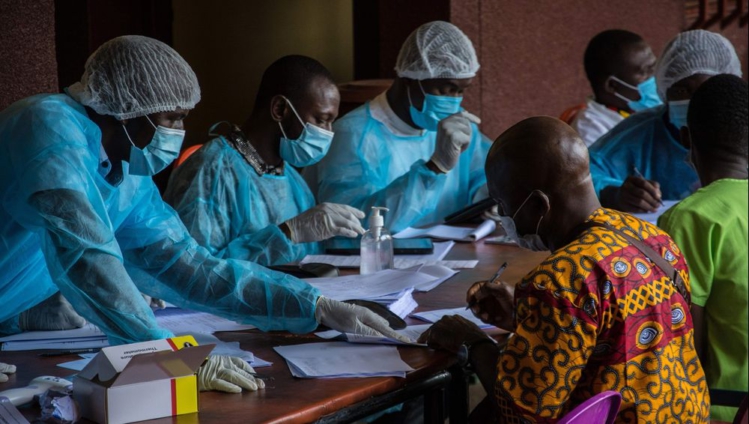Ghana's western neighbour, Cote d’Ivoire has confirmed a first case of the Ebola Virus Disease (EVD) on Sunday, August 15, 2021, the first Ebola outbreak declared by the country's Ministry of Health since 1994.
The announcement was made after the Institut Pasteur in Cote d’Ivoire confirmed the EVD in samples collected from a patient, who was hospitalised in the commercial capital of Abidjan, after arriving from Guinea.
Initial investigations found that the patient had travelled to Cote d’Ivoire by road and arrived in Abidjan on August 12.
The patient was admitted to a hospital after experiencing a fever and is currently receiving treatment.
A statement by the World Health Organization (WHO) Regional Office for Africa said Cote d’Ivoire declared the outbreak in line with International Health Regulations, and WHO does not advise any travel restrictions to and from the country.
“It is of immense concern that this outbreak has been declared in Abidjan, a metropolis of more than 4 million people,” Dr Matshidiso Moeti, Regional Director for WHO Africa said.
It said the world’s expertise in tackling Ebola is on the African continent and Cote d’Ivoire could tap into the experience and bring the response to full speed.
The statement said Cote d'Ivoire's was one of the six countries that WHO has supported recently to beef up their Ebola readiness and this quick diagnosis showed preparedness was paying off.
It said while countries are focused on the Covid-19 response, they should strengthen their preparedness for potential Ebola cases.
Guinea experienced a four-month-long Ebola outbreak, which was declared over on June 19, 2021.
There is, however, no indication that the current case in Cote d’Ivoire is linked to the earlier outbreak in Guinea.
Further investigation and genomic sequencing will identify the strain and determine if there is a connection between the two outbreaks.
This year, Ebola outbreaks have been declared in the Democratic Republic of the Congo and Guinea, but it is the first time an outbreak has occurred in a large capital city such as Abidjan since the 2014–2016 West Ebola outbreak.
Ebola is a severe, often fatal illness affecting humans and other primates, case fatality rates have varied from 25 per cent to 90 per cent in past outbreaks.
There is no effective treatment available and if patients receive treatment early, as well as supportive care, their chances of survival improve significantly.
Latest Stories
-
Today’s Front pages: Thursday, May 22,2025
5 minutes -
Ghana Stock Exchange records over 30% growth in 2025 Q1; best securities market in West Africa
28 minutes -
Smirnoff in the Mix Vol. 2: A bold celebration of Ghana’s DJ Culture, Powered by Chichi DJ
45 minutes -
Kasapreko to list equities on Ghana Stock Exchange
1 hour -
One arm, full heart: Two para athletes living beyond limbs
1 hour -
Edudzi Tameklo welcomes suspended CJ’s application for injunction; says it’s refreshing
2 hours -
Cedi stability partly due to NPP policies – Prof. Bokpin
2 hours -
April Producer Price Inflation drops to 18.5%
2 hours -
Reliable power crucial for 24-hour economy – Asantehene
2 hours -
Meet the 37 members of the 8th NDPC
2 hours -
Government receives $174m as part payment from sale of Newmont’s Akyem Mine
2 hours -
Climate expert cautions public against use of tinted glasses in residential buildings
2 hours -
Cedi appreciation driven by mixed domestic and global factors – Prof. Quartey
2 hours -
Uphold human rights in migrant removals – CHRAJ urges authorities
2 hours -
EU experts praise Ghana’s 2024 elections
2 hours

